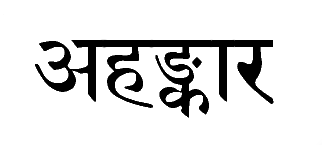There is no such thing as a healthy ego any more than there is a thing called a healthy disease”.
–Pappaji

There is no such thing as a healthy ego any more than there is a thing called a healthy disease”.
–Pappaji
 Part 18 of the serialization of ‘The Dream Problem’ by Dr. R.V. Khedkar. Vasishta discusses with the dreamer the cause of dreams and whether we can determine their nature. He concludes with an explanation of the nature of the physical body.
Part 18 of the serialization of ‘The Dream Problem’ by Dr. R.V. Khedkar. Vasishta discusses with the dreamer the cause of dreams and whether we can determine their nature. He concludes with an explanation of the nature of the physical body.
This is the final part.
 When it comes to identity, we try to find something that we are, somewhere we can plant our flag and say: “This is me. ” The verb ‘to be’ implies a stationary, fixed quality. For instance, “I am a radio show host” has a very different quality from “I host a radio show.” The words ‘I am’ imply that whatever follows is a fixed quality of being, not something that comes and goes.
When it comes to identity, we try to find something that we are, somewhere we can plant our flag and say: “This is me. ” The verb ‘to be’ implies a stationary, fixed quality. For instance, “I am a radio show host” has a very different quality from “I host a radio show.” The words ‘I am’ imply that whatever follows is a fixed quality of being, not something that comes and goes.
Nothing Personal: Seeing beyond the illusion of a separate self, Nirmala, Endless Satsang Foundation, 2001. ISBN 978-0-6151-8767-9. Buy from Amazon US, Buy from Amazon UK
He whom I enclose with my name
is weeping in this dungeon.
I am ever busy building this wall all around;
and as this wall goes up into the sky day by day
I lose sight of my true being in its dark shadow.
I take pride in this great wall,
and I plaster it with dust and sand –
lest a least hole should be left in this name;
and for all the care I take
I lose sight of my true being.
Rabindranath Tagore
(title by Sitara)
Poem source: http://www.saieditor.com/stars/tag.html
Photo credits: pogobuschel@pixelio.de
The topic for the month of December 2013 will be ‘ahaMkAra‘, being the next subject in alphabetic sequence, which offers scope for lots of quotations. Since this is better known as Ego in the west, quotations on this subject are also naturally included. Consequently, we may find the topic extends to two months!
Results of action are of four types:
1) utpAdya – a result in the form of a product, like a pot.
2) Apya – a result in the form of reaching, like going abroad or to heaven.
3) saMskArya – a result in the form of removal of impurity and imparting a good qualiity.
4) vikArya – a result in the form of modification, e.g. milk to yoghurt.
Making, reaching, purifying and modifying are the four results obtained by karma. mokSha (enlightenment) is not a product because it is nitya (eternal). It cannot be reached because it is you. It cannot be purified because it is free from blemish. It cannot be modified because it is one whole. Hence, nitya-mokSha is not a product or by-product of karma.
muNDakopaniShad (Vol. 1), Swam Dayananda Saraswati, Arsha Vidya Centre. ISBN 81-903636-3-8.